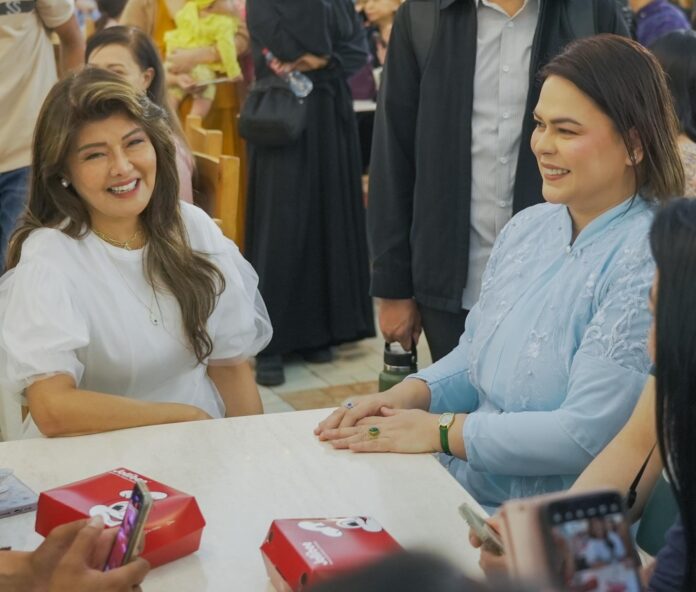President Marcos Jr. welcomed the Association of Southeast Asian Nations’ (ASEAN) non-retaliatory response to the recent increase in tariffs imposed by the United States.
“We commend Malaysia’s leadership in convening the Special ASEAN Economic Ministers’ Meeting and welcome the consensus to avoid retaliatory measures,” the Philippine leader said in his intervention.
Mr. Marcos, who has prioritized stability and constructive engagement in foreign economic policy, underscored the importance of not escalating tensions following the US government’s announcement of increased tariffs on key imports, including electric vehicles and solar cells from several Asian economies.
The President arrived back to Manila early this morning after the two-day event in Kuala Lumpur, wherein he backed “a coordinated and measured response” to the US tariff hikes even though the Philippines was not directly targeted.
“This measured and unified approach upholds ASEAN’s commitment to dialogue, diplomacy, and a rules-based multilateral trading system,” he said.
The President also warned that external shocks and environmental threats could undermine regional progress.
“Unexpected trade barriers, and the unprecedented impact of climate change have the potential to disrupt our communities, supply chains, and remove our hard-earned progress,” he said.
On Tuesday, the Malaysian capital hosted the inaugural summit between ASEAN, China and the Gulf Cooperation Council (GCC)—a regional bloc made up of Bahrain, Kuwait, Oman, Qatar, Saudi Arabia and the United Arab Emirates.
During the event, Chinese Premier Li Qiang said that the first-ever summit between his country, Southeast Asian leaders and Gulf states was “a response to the call of the times” in a geopolitically uncertain world.
Li told the meeting that “against the backdrop of a volatile international situation,” the summit was “a pioneering work of regional economic cooperation.”
The trade-dependent economies are looking to insulate themselves after Trump blew up global trade norms by announcing a slew of tariffs targeting countries around the world this year.
Though US President Donald Trump subsequently instigated a 90-day pause for most, the experience has spurred ASEAN and others to accelerate efforts to diversify their trading networks.
Opening the talks, Malaysian Prime Minister Anwar Ibrahim said he was confident the three sides could “shape a future that is more connected, more resilient, and more prosperous for generations to come”—having warned on Monday that “a transition in the geopolitical order is underway.”
With Washington looking unreliable these days, “ASEAN member states are looking to diversify”, he said.
As this developed, Mr. Marcos called for stronger international cooperation on climate change and urged support for a Philippine-led initiative to help vulnerable nations access critical climate finance.
“Climate change remains one of the most defining challenges of our time — if not the most defining,” he said.
“Both our regions are climate-vulnerable, and our populations face significant climate-related risks,” the President added.
He appealed for contributions to the Loss and Damage Fund (FRLD), which is hosted by the Philippines and aims to support developing countries in mitigating and adapting to the worsening impacts of climate change.
Meanwhile, the Philippine leader also emphasized the strategic importance of the South China Sea and the Arabian Sea in ensuring global trade and stability.
“The South China Sea and the Arabian Sea are lifelines of regional and international commerce,” Mr. Marcos said.
“It is necessary to preserve the freedom of navigation, to guarantee unimpeded commerce, and to protect the marine environment,” he added.
He called on fellow leaders from the 10-member ASEAN and six-member GCC to uphold international law, particularly the United Nations Convention on the Law of the Sea (UNCLOS), as a framework for resolving maritime disputes and ensuring responsible stewardship of marine resources. With AFP








